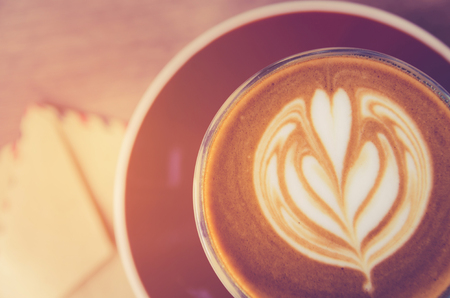1. Introduction to Caffeine and Its Prevalence in American Culture
Caffeine is a part of daily life for millions of Americans. From the first sip of morning coffee to an afternoon soda or an evening energy drink, caffeine plays a central role in how people stay alert and energized throughout the day. Its more than just a habit—its a cultural staple.
In the U.S., coffee shops are on nearly every corner, and grabbing a cup of coffee is often the start of a workday ritual. According to the National Coffee Association, about 7 in 10 Americans drink coffee each week, and 62% consume it daily. But coffee isn’t the only source of caffeine—tea, soda, chocolate, and energy drinks also contribute to daily intake.
Heres a quick look at common sources of caffeine and their average caffeine content:
| Beverage/Food | Average Caffeine Content |
|---|---|
| Brewed Coffee (8 oz) | 95 mg |
| Espresso (1 oz shot) | 63 mg |
| Black Tea (8 oz) | 47 mg |
| Soda (12 oz can) | 30–40 mg |
| Energy Drink (8 oz) | 70–100 mg |
| Dark Chocolate (1 oz) | 12 mg |
Caffeine’s popularity is tied closely to its stimulating effects. People often rely on it to wake up, stay focused at work or school, and fight off the mid-afternoon slump. It’s even used before workouts to boost physical performance. Over time, though, regular consumption may lead to changes in how the brain functions.
This article explores how everyday caffeine use—something so normal in American life—can have long-term effects on the brain. Understanding this relationship starts with recognizing just how common caffeine consumption is in our culture.
2. How Caffeine Affects the Brain in the Short Term
When you drink your morning cup of coffee, the effects can kick in within as little as 15 minutes. These short-term effects are mainly due to how caffeine interacts with your brain—especially with a neurotransmitter called adenosine.
Blocking Adenosine: The Key Mechanism
Adenosine is a chemical in your brain that makes you feel sleepy. Throughout the day, adenosine builds up and helps signal your body that it’s time to rest. Caffeine works by blocking adenosine receptors. When caffeine occupies these receptors, it prevents adenosine from making you feel drowsy, leading to increased alertness and energy.
Immediate Benefits of Caffeine on Brain Function
By interfering with adenosine, caffeine triggers a chain reaction in the brain that leads to several noticeable short-term benefits:
| Effect | Description |
|---|---|
| Increased Alertness | You feel more awake and focused because your brain isnt receiving the “tired” signals from adenosine. |
| Improved Mood | Caffeine stimulates dopamine production, which can lead to a temporary boost in mood and feelings of well-being. |
| Enhanced Concentration | Tasks that require attention may seem easier because your mind feels more sharp and responsive. |
Caffeines Timeline in the Body
The effects of caffeine usually peak within 30 to 60 minutes after consumption. Most people feel its stimulating impact for about 4 to 6 hours, although this can vary depending on individual metabolism and sensitivity.
Fun Fact:
Did you know that even decaf coffee contains small amounts of caffeine? While not enough to significantly boost alertness, it can still have mild effects on sensitive individuals.
Understanding how caffeine affects the brain right after consumption is crucial when exploring its long-term impact. These short-term boosts in energy and focus are what make caffeine such a popular part of daily life—but they also lay the foundation for how our brains adapt over time.
![]()
3. Adaptation and Tolerance: What Happens Over Time
When you drink coffee or consume caffeine every day, your brain doesnt just sit back and enjoy the buzz — it actually starts to change in response. This process is called adaptation, and over time, it can lead to something known as caffeine tolerance.
How the Brain Reacts to Regular Caffeine Intake
Caffeine works by blocking a neurotransmitter called adenosine, which is responsible for making you feel sleepy. When caffeine blocks adenosine, you feel more awake and alert. But if you do this daily, your brain starts producing more adenosine receptors to compensate. That means youll need more caffeine to get the same effect — this is how tolerance builds up.
Changes in Neurotransmitter Activity
As the brain adjusts to regular caffeine intake, it may also affect other neurotransmitters like dopamine (linked to motivation and pleasure) and serotonin (involved in mood regulation). These changes can subtly shift how your brain functions on a day-to-day basis. For some people, this might mean they feel less energetic or focused without their usual cup of coffee, even if they’re well-rested.
What Tolerance Might Look Like
If youre not sure whether youve built up a tolerance to caffeine, here are some signs:
| Sign of Tolerance | What It Means |
|---|---|
| You need more coffee to feel alert | Your body has adjusted and requires higher doses for the same effect |
| You feel tired without caffeine | Your baseline energy may have shifted due to daily caffeine use |
| You get headaches when skipping coffee | This could be a withdrawal symptom from regular use |
Baseline Energy Levels May Shift
Over time, your “normal” energy level might start depending on caffeine. Instead of giving you an extra boost, your daily coffee just brings you back to baseline — meaning you might not feel fully awake or functional without it. This is why some people find themselves needing multiple cups throughout the day just to stay steady.
The Takeaway on Brain Adaptation
Your brain is incredibly adaptable, but that also means it adjusts when you consume caffeine regularly. Tolerance is a natural response, but its important to be mindful of how much caffeine youre taking in and how its affecting your overall mental clarity and energy levels.
4. Potential Long-Term Cognitive Benefits and Drawbacks
Caffeine is a daily staple for millions of Americans, whether it’s your morning cup of coffee, an afternoon soda, or an energy drink before the gym. But what does consuming caffeine every day really do to your brain over time? Researchers have been digging into this question, especially looking at its long-term effects on memory, cognitive decline, neuroprotection, and sleep patterns.
Memory and Cognitive Performance
Some studies suggest that regular caffeine consumption may help with certain types of memory and mental sharpness. For example, caffeine appears to enhance short-term alertness and reaction time. In older adults, there’s evidence that moderate caffeine intake could be linked to slower cognitive decline.
| Study | Population | Findings |
|---|---|---|
| Johns Hopkins University (2014) | Healthy adults | Caffeine improved memory retention up to 24 hours after learning. |
| Harvard School of Public Health (2012) | Older women (65+) | Moderate caffeine intake associated with less cognitive decline over 4 years. |
Neuroprotective Effects
There’s growing interest in how caffeine might protect the brain from age-related diseases like Alzheimer’s and Parkinson’s. Some research points to caffeine reducing the buildup of harmful proteins in the brain and improving blood flow, both of which may lower the risk of these conditions.
What the Research Suggests:
- Alzheimer’s Disease: Regular caffeine use may reduce beta-amyloid plaque buildup — a key factor in Alzheimer’s development.
- Parkinson’s Disease: Studies show that people who consume caffeine daily have a lower risk of developing Parkinson’s.
The Downside: Sleep Disruption and Dependency
Caffeines downside shows up most clearly in how it affects sleep. Since it blocks adenosine — a chemical that makes you feel sleepy — having caffeine too late in the day can lead to trouble falling asleep or staying asleep. Over time, poor sleep can hurt concentration, memory, and overall brain health.
Common Issues Related to Daily Caffeine Use:
- Sleep Quality: Even one cup of coffee in the late afternoon can delay your sleep cycle by several hours.
- Anxiety and Jitters: High doses can increase stress hormones like cortisol.
- Tolerance: Your body gets used to caffeine over time, which means you might need more to get the same effect — leading to dependency.
A Quick Look at Pros and Cons
| Potential Benefit | Potential Drawback |
|---|---|
| Might improve long-term memory retention | Can disrupt sleep if consumed too late in the day |
| May offer protection against Alzheimer’s and Parkinson’s diseases | May cause anxiety or irritability in sensitive individuals |
| Mental alertness and focus boost during waking hours | Tolerance can reduce effectiveness over time |
The research so far shows a mixed bag when it comes to daily caffeine use. While there are potential cognitive benefits like sharper memory and possible protection against brain diseases, those perks come with trade-offs like disrupted sleep and dependency risks. Understanding both sides helps us make smarter choices about our daily habits.
Caffeine and Mental Health: A Closer Look
In the fast-paced rhythm of American life, caffeine often feels like a daily necessity. Whether its a morning cup of coffee to jumpstart the day or an afternoon energy drink to push through work deadlines, caffeine is deeply embedded in the culture. But while it helps keep us alert and focused, long-term daily use can have complicated effects on mental health—especially when it comes to anxiety, depression, and stress.
How Caffeine Interacts with Mental Health
Caffeine primarily works by blocking adenosine receptors in the brain, which delays feelings of tiredness and promotes wakefulness. However, this stimulation also increases the production of stress hormones like cortisol and adrenaline. Over time, this constant state of fight or flight can take a toll on emotional well-being.
Anxiety: Wired but Tired
For many Americans juggling demanding jobs and personal responsibilities, caffeine may seem like a lifesaver. But for people who are already prone to anxiety—or live in high-stress environments—daily caffeine can amplify symptoms such as restlessness, irritability, and rapid heart rate. Studies have shown that consuming more than 400 mg of caffeine per day (roughly four cups of coffee) can worsen anxiety in sensitive individuals.
Depression: A Complex Relationship
The link between caffeine and depression is less straightforward. Some research suggests moderate caffeine intake might have mood-lifting effects by increasing dopamine levels—the same chemical targeted by many antidepressants. However, heavy and prolonged consumption could disrupt sleep patterns and increase fatigue over time, potentially making depressive symptoms worse in the long run.
Stress: Fueling the Burnout
In American work culture—where long hours, multitasking, and productivity are highly valued—caffeine often becomes a tool to meet expectations. Unfortunately, relying on it daily to power through stress can backfire. The boost in cortisol levels caused by caffeine may contribute to chronic stress if not balanced with proper rest and nutrition.
Caffeine Intake and Mental Health Impact Table
| Caffeine Intake Level | Approximate Daily Amount | Potential Mental Health Impact |
|---|---|---|
| Low (under 200 mg) | 1-2 cups of coffee | Mild alertness boost; generally safe for most people |
| Moderate (200-400 mg) | 2-4 cups of coffee | May improve mood and focus; monitor for anxiety if sensitive |
| High (over 400 mg) | 4+ cups of coffee or energy drinks | Increased risk of anxiety, sleep disruption, and elevated stress levels |
The Role of Lifestyle Factors
The impact of caffeine on mental health isnt just about how much you consume—it’s also about your lifestyle. In the U.S., where many adults experience sleep deprivation due to demanding schedules, using caffeine as a substitute for rest can create a harmful cycle. Skipping meals, lack of physical activity, and insufficient downtime all amplify the negative mental effects of chronic caffeine use.
Quick Tips for Balanced Caffeine Use:
- Aim to cut off caffeine at least six hours before bedtime to avoid sleep issues.
- Pair caffeine with food to reduce jitters or crashes.
- Try substituting one cup of coffee with herbal tea or water during high-stress days.
- If youre feeling unusually anxious or down, consider reducing your intake gradually rather than quitting cold turkey.
Caffeine can be both helpful and harmful depending on how its used. In America’s hustle-driven culture, understanding its long-term effects on mental health is key to making smarter choices for both productivity and peace of mind.
6. Recommendations for Safe and Balanced Consumption
While caffeine can boost alertness and focus, it’s important to enjoy it in a way that supports long-term brain health. Over time, daily caffeine use may impact sleep quality, hydration levels, and even increase anxiety if not managed properly. Below are some simple tips to help you get the mental benefits of caffeine without the downsides.
How Much Caffeine Is Too Much?
The FDA suggests that up to 400 milligrams (mg) of caffeine per day is generally safe for most healthy adults. That’s about four 8-ounce cups of brewed coffee. But everyone reacts differently, so its smart to pay attention to how your body responds.
| Beverage | Average Caffeine Content |
|---|---|
| Brewed Coffee (8 oz) | 95 mg |
| Espresso (1 oz shot) | 63 mg |
| Black Tea (8 oz) | 47 mg |
| Energy Drink (8 oz) | 70–100 mg |
| Soda (12 oz) | 30–40 mg |
The Best Time to Drink Caffeine
Timing matters when it comes to caffeine and your brain. Consuming caffeine too late in the day can interfere with your sleep cycle, which plays a big role in memory and cognitive function.
- Ideal window: Between 9:00 a.m. and 2:00 p.m.
- Avoid caffeine within 6 hours before bedtime
Dont Forget Sleep and Hydration
Caffeine is a mild diuretic, meaning it can lead to fluid loss. Plus, relying on it too much can disrupt sleep patterns over time—both of which are key to keeping your brain sharp.
Tips for Balance:
- Drink at least 8 cups of water daily, especially if you drink coffee or energy drinks
- Aim for 7–9 hours of quality sleep each night
- If youre feeling tired often, consider whether youre using caffeine as a crutch for poor sleep habits
A Smart Routine Example:
| Time of Day | Caffeine Strategy |
|---|---|
| Morning (7–9 a.m.) | Start with one cup of coffee or tea after breakfast |
| Late Morning (10–11 a.m.) | A second small serving if needed for focus |
| Afternoon (After 2 p.m.) | Switch to decaf or herbal tea to avoid sleep disruption |
By being mindful about how much and when you consume caffeine—and making sure it doesn’t replace good sleep or hydration—you can enjoy its benefits while protecting your brains long-term health.


